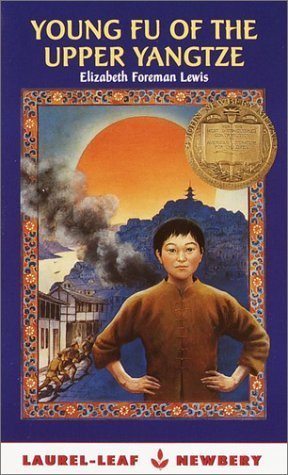What do you think?
Rate this book


320 pages, Mass Market Paperback
First published January 1, 1932
"Since Tang was helping you, it was not necessary for me to know." Fu Be Be said after a long pause. "Why did you tell me?"
"I do not know. I had to do so." Young Fu's fingers picked at a small rough place on the table surface. Finally, he raised his eyes to his mother's and found the other's wet with tears. ... After a time she spoke, "You have become a man overnight."
“There is no merit worthy of boasting.” Wang Scholar to Young Fu when he brags about learning to write some characters. 53
“Learn, as should any good student, the first sentence from the San-Tz-Ching: ‘At birth, men are by nature good of heart.’” Wang Scholar to Young Fu. 54
“If a man’s affairs are to prosper, it is simply a matter of purpose.” A sentence that Wang Scholar had taught Young Fu to write. 64 (On p. 66 his boss says the same thing to him.)
“When in trouble, silence is the best refuge.” Wang Scholar to Young Fu. 112
Yung Fu: The coward mistakes a rock for a tiger. 127
Tang, the coppersmith: “Disaster falls on those who try hardest to avoid it.” 132
(Father ling, impoverished because of war:) “Character is made by rising above one’s misfortunes.” 149
Wang scholar had a saying, “No man can rule the unruly until he first rules himself.” 164
The shallow teapot does the most spouting, and boils dry most quickly!
Fu Be Be, young Fu’s mother. 167
“Only the man who can eat the bitterness of bitterness can become the hero of heroes!”
The coppersmith, Tang, who takes Young Fu on as an apprentice. 178 (Also, on p. 42, a coolie – who carries burdens – is described as an eating-bitterness man because of his hard life)
“He who rides on a tiger cannot dismount when he pleases.”
A saying of Tang’s which Young Fu remembers when he loses money gambling. 187
“Medicines are bitter in the mouth, but they cure sickness.”
Tang to Young Fu when Young Fu shows humility. 197
“No man is entirely devoid of goodness, and the princely man is tolerant of other men’s weaknesses.” Wang Scholar, when Young Fu confesses how much he despises Den. 205
“Disease enters by way of the mouth; most of men’s troubles come out of it.”
Tang, to the accountant who tried to cast suspicion on Young Fu because of a theft. 215
“The monkey looks in a mirror and wonders at the charm of his own reflection.” Old Tsu in the coppersmith’s workshop, to Young Fu, who was being overly proud and impudent. 227
“The superior man finds pleasure in doing what is uncongenial.” Tang to Young Fu, about learning to enjoy a task which he thought was below him. 249blockquote>